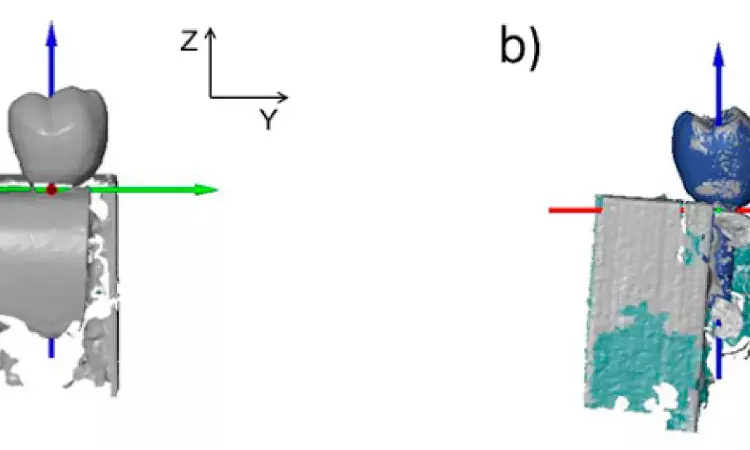- Home
- Medical news & Guidelines
- Anesthesiology
- Cardiology and CTVS
- Critical Care
- Dentistry
- Dermatology
- Diabetes and Endocrinology
- ENT
- Gastroenterology
- Medicine
- Nephrology
- Neurology
- Obstretics-Gynaecology
- Oncology
- Ophthalmology
- Orthopaedics
- Pediatrics-Neonatology
- Psychiatry
- Pulmonology
- Radiology
- Surgery
- Urology
- Laboratory Medicine
- Diet
- Nursing
- Paramedical
- Physiotherapy
- Health news
- Fact Check
- Bone Health Fact Check
- Brain Health Fact Check
- Cancer Related Fact Check
- Child Care Fact Check
- Dental and oral health fact check
- Diabetes and metabolic health fact check
- Diet and Nutrition Fact Check
- Eye and ENT Care Fact Check
- Fitness fact check
- Gut health fact check
- Heart health fact check
- Kidney health fact check
- Medical education fact check
- Men's health fact check
- Respiratory fact check
- Skin and hair care fact check
- Vaccine and Immunization fact check
- Women's health fact check
- AYUSH
- State News
- Andaman and Nicobar Islands
- Andhra Pradesh
- Arunachal Pradesh
- Assam
- Bihar
- Chandigarh
- Chattisgarh
- Dadra and Nagar Haveli
- Daman and Diu
- Delhi
- Goa
- Gujarat
- Haryana
- Himachal Pradesh
- Jammu & Kashmir
- Jharkhand
- Karnataka
- Kerala
- Ladakh
- Lakshadweep
- Madhya Pradesh
- Maharashtra
- Manipur
- Meghalaya
- Mizoram
- Nagaland
- Odisha
- Puducherry
- Punjab
- Rajasthan
- Sikkim
- Tamil Nadu
- Telangana
- Tripura
- Uttar Pradesh
- Uttrakhand
- West Bengal
- Medical Education
- Industry
High-frequency ultrasound noninvasive tool for detecting peri-implant mucositis and PI disease progression: Study

High-frequency ultrasound noninvasive tool for detecting peri-implant mucositis and PI disease progression suggests a study published in the Journal of Clinical Periodontology.
A study was done to apply high-frequency ultrasound (HFUS) echo intensity for characterizing peri-implant tissues at healthy and diseased sites and to investigate the possible ultrasonographic markers of health versus disease. Sixty patients presenting 60 implants diagnosed as healthy (N = 30) and peri-implantitis (N = 30) were assessed with HFUS. HFUS scans were imported into a software where first-order greyscale outcomes [i.e., mean echo intensity (EI)] and second-order greyscale outcomes were assessed. Other ultrasonographic outcomes of interest involved the vertical extension of the hypoechoic supracrestal area (HSA), soft-tissue area (STA) and buccal bone dehiscence (BBD), among others.
Results: HFUS EI mean values obtained from peri-implant soft tissue at healthy and diseased sites were 122.9 ± 19.7 and 107.9 ± 24.7 grey levels (GL); p = .02, respectively. All the diseased sites showed the appearance of an HSA that was not present in healthy implants (area under the curve = 1). The proportion of HSA/STA was 37.9% ± 14.8%. Regression analysis showed that EI of the peri-implant soft tissue was significantly different between healthy and peri-implantitis sites. HFUS EI characterization of peri-implant tissues shows a significant difference between healthy and diseased sites. HFUS EI and the presence/absence of an HSA may be valid diagnostic ultrasonographic markers to discriminate peri-implant health status.
Reference:
Galarraga-Vinueza, M. E., Barootchi, S., Mancini, L., Sabri, H., Schwarz, F., Gallucci, G. O., & Tavelli, L. (2024). Echo-intensity characterization at implant sites and novel diagnostic ultrasonographic markers for peri-implantitis. Journal of Clinical Periodontology, 1–12. https://doi.org/10.1111/jcpe.13976
Dr. Shravani Dali has completed her BDS from Pravara institute of medical sciences, loni. Following which she extensively worked in the healthcare sector for 2+ years. She has been actively involved in writing blogs in field of health and wellness. Currently she is pursuing her Masters of public health-health administration from Tata institute of social sciences. She can be contacted at editorial@medicaldialogues.in.
Dr Kamal Kant Kohli-MBBS, DTCD- a chest specialist with more than 30 years of practice and a flair for writing clinical articles, Dr Kamal Kant Kohli joined Medical Dialogues as a Chief Editor of Medical News. Besides writing articles, as an editor, he proofreads and verifies all the medical content published on Medical Dialogues including those coming from journals, studies,medical conferences,guidelines etc. Email: drkohli@medicaldialogues.in. Contact no. 011-43720751


